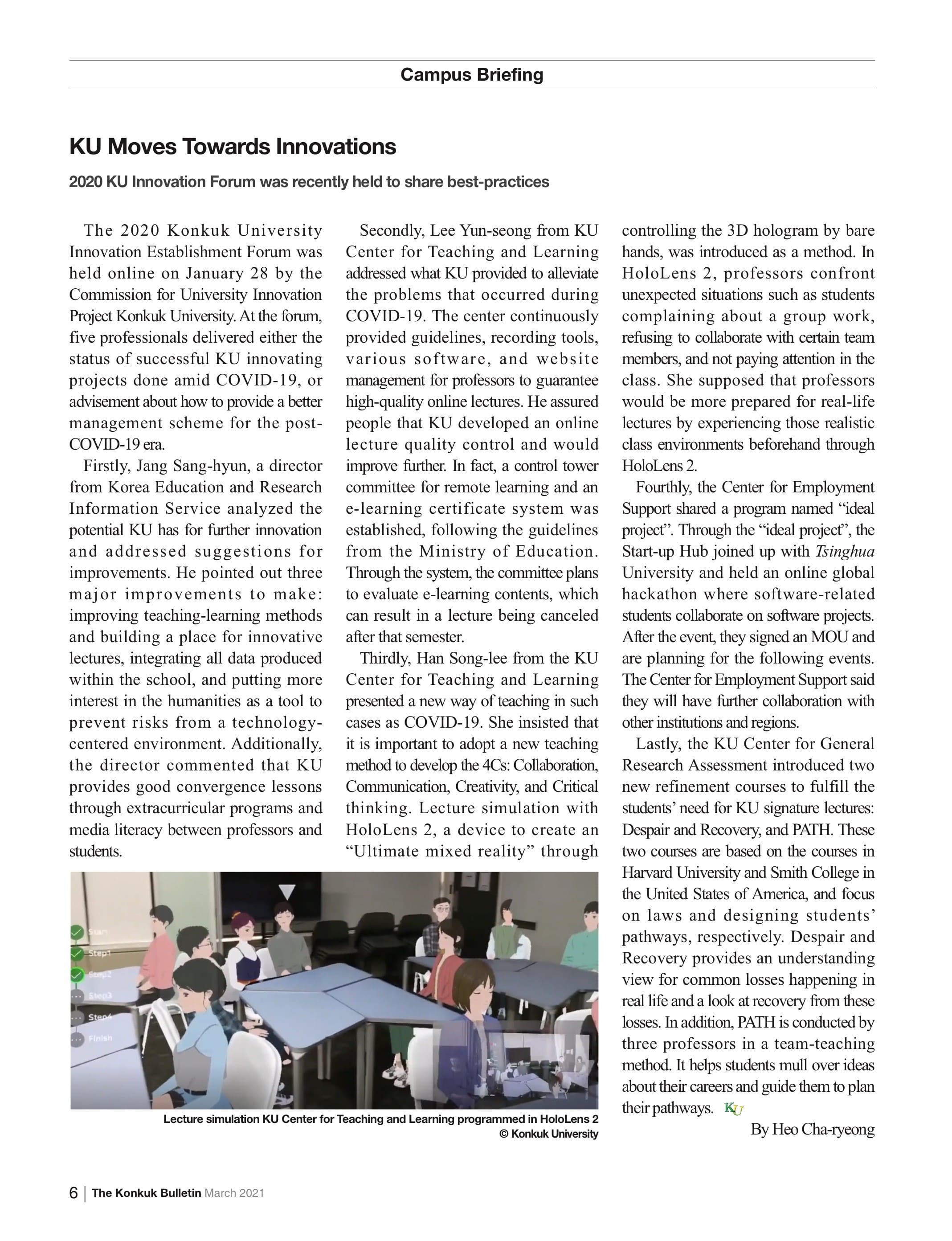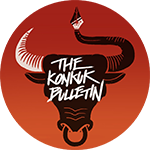2020 KU Innovation Forum was recently held to share best-practices

The 2020 Konkuk University Innovation Establishment Forum was held online on January 28 by the Commission for University Innovation Project Konkuk University. At the forum, five professionals delivered either the status of successful KU innovating projects done amid COVID-19, or advisement about how to provide a better management scheme for the post-COVID-19 era.
Firstly, Jang Sang-hyun, a director from Korea Education and Research Information Service analyzed the potential KU has for further innovation and addressed suggestions for improvements. He pointed out three major improvements to make: improving teaching-learning methods and building a place for innovative lectures, integrating all data produced within the school, and putting more interest in the humanities as a tool to prevent risks from a technology-centered environment. Additionally, the director commented that KU provides good convergence lessons through extracurricular programs and media literacy between professors and students.
Secondly, Lee Yun-seong from KU Center for Teaching and Learning addressed what KU provided to alleviate the problems that occurred during COVID-19. The center continuously provided guidelines, recording tools, various software, and website management for professors to guarantee high-quality online lectures. He assured people that KU developed an online lecture quality control and would improve further. In fact, a control tower committee for remote learning and an e-learning certificate system was established, following the guidelines from the Ministry of Education. Through the system, the committee plans to evaluate e-learning contents, which can result in a lecture being canceled after that semester.
Thirdly, Han Song-lee from the KU Center for Teaching and Learning presented a new way of teaching in such cases as COVID-19. She insisted that it is important to adopt a new teaching method to develop the 4Cs: Collaboration, Communication, Creativity, and Critical thinking. Lecture simulation with HoloLens 2, a device to create an “Ultimate mixed reality” through controlling the 3D hologram by bare hands, was introduced as a method. In HoloLens 2, professors confront unexpected situations such as students complaining about a group work, refusing to collaborate with certain team members, and not paying attention in the class. She supposed that professors would be more prepared for real-life lectures by experiencing those realistic class environments beforehand through HoloLens 2.
Fourthly, the Center for Employment Support shared a program named “ideal project”. Through the “ideal project”, the Start-up Hub joined up with Tsinghua University and held an online global hackathon where software-related students collaborate on software projects. After the event, they signed an MOU and are planning for the following events. The Center for Employment Support said they will have further collaboration with other institutions and regions.
Lastly, the KU Center for General Research Assessment introduced two new refinement courses to fulfill the students’ need for KU signature lectures: Despair and Recovery, and PATH. These two courses are based on the courses in Harvard University and Smith College in the United States of America, and focus on laws and designing students’ pathways, respectively. Despair and Recovery provides an understanding view for common losses happening in real life and a look at recovery from these losses. In addition, PATH is conducted by three professors in a team-teaching method. It helps students mull over ideas about their careers and guide them to plan their pathways.

